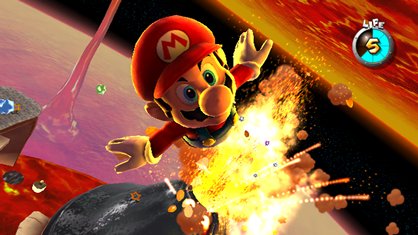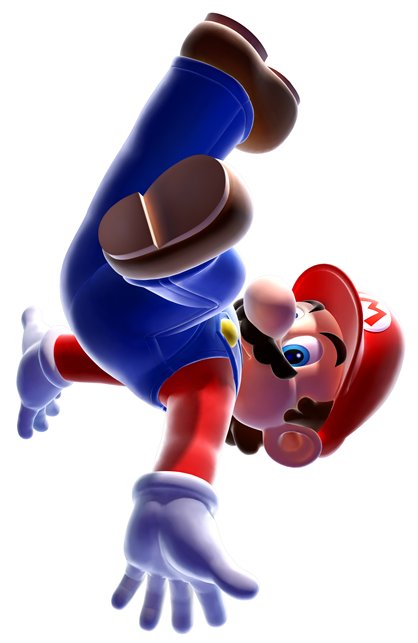Has the Wii really improved anything?
With all of Nintendo's big first-party franchises now out on the Wii, we look at whether motion control has really revolutionised any of them
Super Mario Galaxy

What is it?
The planet-hopping, gravity-bending third 3D Mario game; successor to Super Mario 64 (genius) and Super Mario Sunshine (less so).
Is it better than the last one?
It’s better than all of them. Every single one. Forget all of those “But is it as good as Super Mario 64?” reservations that were bandied about by the games press around the time of its release. Artistically, technically, and design-wise, Super Mario Galaxy is the crowning achievement of the whole series. It’s like all of Shigeru Miyamoto’s happiest cheese dreams played out right in front of you, accompanied by one of the most stirring musical scores yet heard in a game and a surprising amount of emotional content for a platformer.

But then Super Mario Galaxy isn’t just a platformer. It distills everything that’s been good about the genre over the years while simultaneously exploding its potential out in so many gloriously unexpected and inventive directions that it’s almost dizzying.
The fact that it’s a masterpiece of game design would alone make Super Mario Galaxy one of the very finest games of 2007 – no small boast given the output quality of last year – but it’s also the best-looking game on the Wii by an embarrassing margin. With just a few canny artistic choices and a bit of effort (that’s all it takes devs, seriously), Nintendo managed to make SMG look almost good enough to release on the 360. Not bad for two Gamecubes taped together. We could honestly go on for pages upon pages about why Super Mario Galaxy is one of the very best games you can play right now, but that would be a waste of our time and yours. Time that could be much more happily spent playing the thing instead. So what are you waiting for?
Weekly digests, tales from the communities you love, and more
Did the Wii really help?
This is the stickler. You see, while SMG is still the best reason to own a Wii, it’s barely any kind of a showcase for the machine’s main selling point. The game’s many joys mostly come through pure unadulterated game design rather than any kind of waggle-based malarkey.
In fact, that Galaxy is so minimalist with its use of motion control is one of the strongest cards in its hand. Given the title’s landmark nature, it would have been easy to drown the game’s quality with gratuitous controller waving just for the sake of showboating the console’s abilities, but to do that would have distracted from what’s really great about the game.
Of course, when motion control does come into play it’s implemented brilliantly. Using the remote as a joystick to control a rolling ball, or twisting it to direct a manta ray around an undulating watery race course is more fun than a lot of standalone Wii games are in their entireties. But crucially, Super Mario Galaxy puts motion control on the back burner, bringing it out only when it compliments the rest of an already solid ‘traditional’ game. And maybe that approach is how the best Wii games of the future are going to come about.



